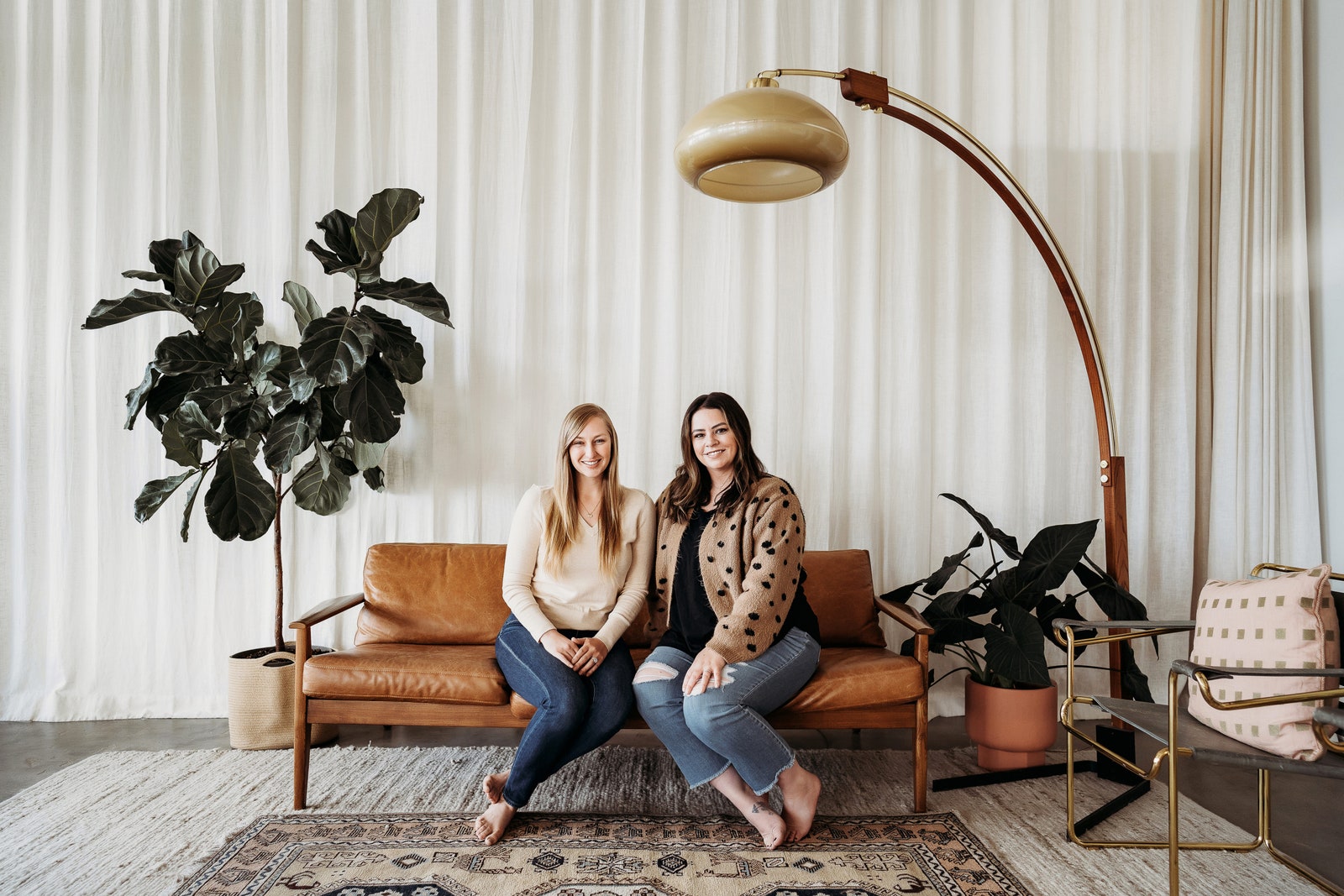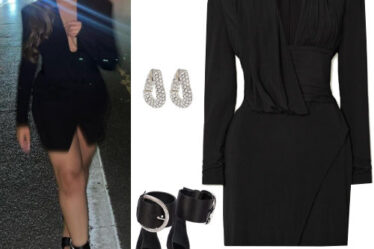
Deena Margolin: We couldn’t have been more different. We grew up in Los Angeles and went to this very intense, academically rigorous high school. I was the good girl. I’m in the front row raising my hand—
Kristin Gallant: And I’m in detention. Detention was in the mornings, before school, so I would be high-fiving Deena on my way out of it as she was walking in. We both had these traumatic upbringings, and I think that for other people we put on a face, kept things light. But with each other we could really be ourselves.
Deena: It was kind of like—okay, you get it. You’re not judging it, and you’re safe.
Which is huge at that age, especially. What sorts of issues were you working through?
Kristin: I had two parents who suffered from different mental health issues, and this was the ’80s and ’90s. There wasn’t a whole lot of, “Let’s go to therapy! Let’s take medication!” It was very tumultuous.
Deena: At my house, things were volatile. Unhappy, full of resentment—that was the atmosphere. My parents had a lot of love for us, but they also just had really bad coping and communication skills. When I was sixteen, I was getting recruited for softball, which was really high pressure, my parents were fighting a lot, and I got broken up with for the first time ever. I went into my first depression where one day I was like, “You know what? I’m done.” So I made a [suicide] plan. I set it up; I had everything ready. And when I went to go do it, I had this really strange kind of primal feeling that was: I just want to meet my kids. I don’t know why, but that was the one thing that kept me from doing it. I knew I wanted to spend my life figuring out how kids can feel good, how families can be healthy. That’s been my life’s mission since I was sixteen.
Alex Morris Design
So when you’re imparting wisdom on Big Little Feelings, you’re not just sort of doling out advice—you’re trying to break generational patterns, it sounds like.
Deena: Yes. The way someone spoke to you in your childhood, the way someone responded to your feelings, that wires how you speak later in relationships. We’re rewiring ourselves. And compassion for yourself as you’re doing that is so huge.
Kristin: It’s the number one thing I want parents to take from our page. If it’s your instinct to go, “Stop crying. Just stop” or “You’re fine, you’re fine, happy happy, be a good girl, be a quiet girl, smile”—those are things that were said to you. If you’re repeating it, you shouldn’t feel like “Oh no, I’m fucking up my kid.” You can always work on just replacing one little phrase with something a little healthier.
So when did you go from thinking about all this stuff as an expert and a mom to thinking, hey, there might be a business here?



